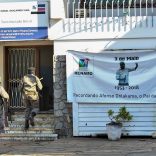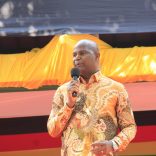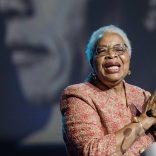Mozambique: President willing to change laws to combat corruption
Just In: Parliament approves law on political agreement | Mozambique

Image: Miramar
The Mozambican parliament today approved in general terms, unanimously and by acclamation, the proposed law on the political agreement to bring peace to the country, including the revision of the Constitution of the Republic and of the powers of the president.
The draft law was approved this morning in Maputo by the four parliamentary benches.
The Mozambique Liberation Front (Frelimo), the ruling party, justified its vote in favour because it aims to ensure that “democracy continues to reside in the people”.
“With the approval, (…) this tenth legislature has this sublime opportunity to contribute to the mission of renewing Mozambique, of re-establishing its foundations, putting our country and the interests of Mozambicans first,” declared the leader of the Frelimo parliamentary bench.
“Its importance lies, firstly, in creating an environment of dialogue and trust between the parties, allowing for greater predictability in the political system and reducing the risk of instability. In addition, the agreement can contribute to strengthening democratic institutions,” added Feliz Sílvia.
Government calls for approval of law to bring peace and ensure stability in Mozambique
The proposed law is based on the agreement between President Daniel Chapo and all political parties, signed on March 5 and submitted to the Assembly of the Republic for urgent consideration.
The parliamentary group of the Democratic Movement of Mozambique (MDM) considered that the proposed law opens up “new perspectives for a future of hope”, but criticized the initiative for being late, indicating that the “arrogance of some” allowed demonstrations to continue for almost four months in the country.
“Yes, right after the elections, we warned about the dangers that fraudulent and falsified elections could cost the country. Unfortunately, it was only after much blood had been spilled that it was understood that political power cannot be exercised by force of arms,” said the leader of the MDM parliamentary group, Fernando Bismarque.
Podemos, the second largest political force in Mozambique, considered the agreement “a turning point, a gesture of reconciliation between the state and its people”, arguing that the country needs a “new pact” for democratic coexistence.
Podemos now hopes that “the state will decentralize its listening and centralize its response; young people will be political subjects and not just electoral instruments; inclusion will become an operational criterion for governance; conflicts will be resolved through institutional mechanisms and not through violence”, said Sebastião Mussanhane, leader of the Podemos bench.
The Mozambican National Resistance (Renamo) has criticised the signing of successive agreements in Mozambique aimed at achieving peace and stability, accusing the government of violating them.
“Political instability is the result of successive frauds that give rise to post-election conflicts in which the regime of the day, seeking to perpetuate itself in power, uses the power of the State, through the police, against the people and anyone who dares to demonstrate and demand their rights,” said Jerónimo Malagueta, leader of the Renamo parliamentary group.
“Once this agreement is signed and transformed into law, it should not be another expedient of the regime to deceive the people. It should not be used to buy time for the regime to rearm itself and continue to repress the people,” he appealed, also asking for pardons for those arrested in the demonstrations.
Within the scope of the Constitutional reform, three objectives are assumed in the law, firstly the “reform of the State”, with measures at the level of the “political system, the powers of the President (…), de-politicization of State institutions, decentralization and political, economic and financial de-concentration”.
Former presidential candidate Venâncio Mondlane, who does not recognize the results of the general elections of October 9, called for the protests that, in five months, caused around 360 deaths.
However, on March 23, Venâncio Mondlane and Daniel Chapo met for the first time and a commitment was made to end the violence in the country.












Leave a Reply
Be the First to Comment!
You must be logged in to post a comment.
You must be logged in to post a comment.